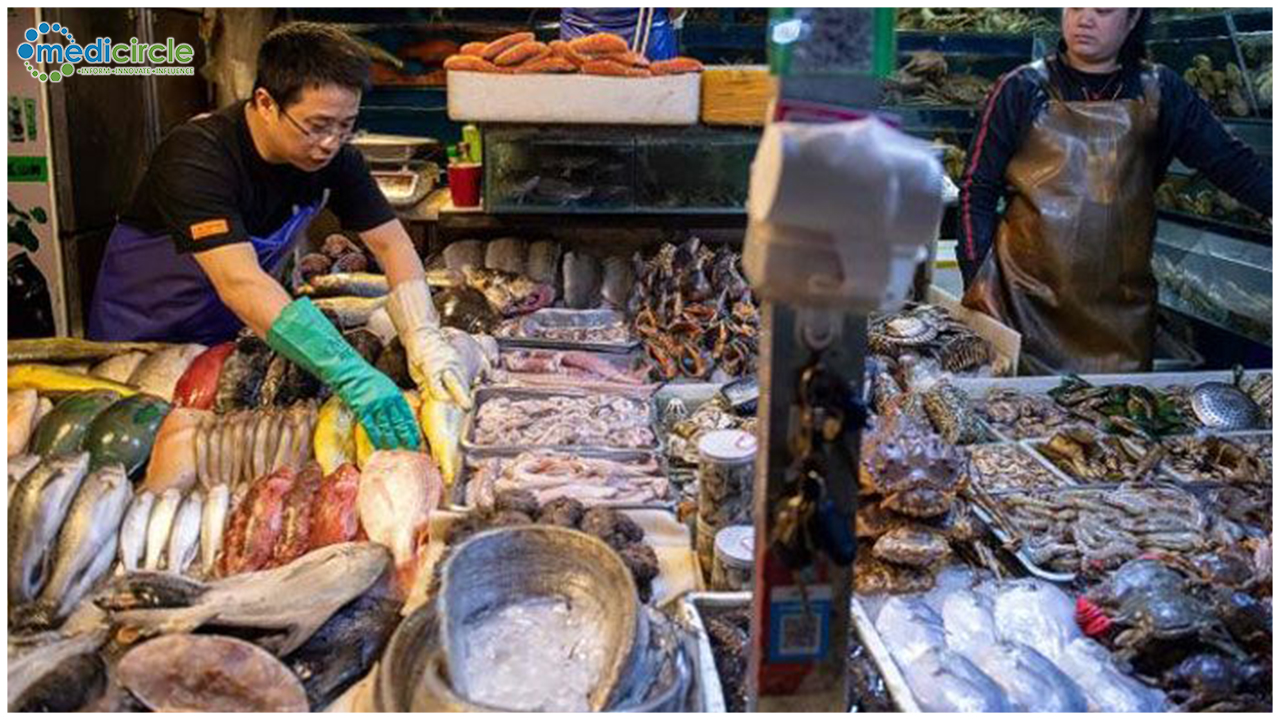At a huge food market in the Chinese city of Wuhan, signs restrict the selling of wild creatures and live fowl, while declarations calling for "triumph" over COVID-19 play on a circle from speakers.
China's "wet markets" have been pummeled universally as the coronavirus irritates the world, with the illness having risen out of slows down selling live games in Wuhan toward the end of last year.
The administration has since restricted the offer of natural life for nourishment, however, the reviving of business sectors has drawn analysis from around the globe as the loss of life from the pandemic keeps on mounting.
Close down during the extensive isolate that fixed off Wuhan until April 8, the city's business sectors are currently battling for endurance as clients have not been surging back.
"Doubtlessly, we're bound for the current year," flavor dealer Yang, who runs a slow down at the gigantic Baishazhou discount advertise, told AFP. "There have never been scarcely any individuals at our market."
Yang, whose deals have fallen by a third from before the lockdown, excused analysis of business sectors as infection hotbeds as "pointless frenzy".
One market stays shut: The Huanan Seafood Market that sold a scope of outlandish natural life and is associated to be the support of the infection that bounced from creatures to people.
Wet markets are famous scenes to purchase new meat, vegetables, and fish across Asia - most selling normal, ordinary produce to local people at moderate costs.
Most don't sell live creatures, albeit some do.
During visits to three Wuhan advertises this week, AFP saw live turtles, frogs, fish and scavengers available to be purchased, however no fowl or warm-blooded creatures accused of past sicknesses.
Laborers at Baishazhou said they were presently required to sanitize their slows down a few times each day. Yang keeps different containers of disinfectant in her little office, nearby a case of covers.
By and by, Australian Prime Minister Scott Morrison said for the current week the choice to revive wet markets was "incredible".
"We have to ensure the world against potential wellsprings of episodes of these kinds of infections," he revealed to Australian TV.
The top clinical pro for the US government, Anthony Fauci, disclosed to Fox News not long ago that wet markets ought to be closed down "immediately."
'Damned'
The nationalistic state-run Global Times propelled strident protection of China's wet markets on Tuesday, assaulting "assumptions" and "absurd solicitations" to close them.
While the World Health Organization has said governments must boycott the offer of fascinating natural life and authorize sanitation guidelines, it has not required any wet markets to be shut.
Sellers at Wuhan's business sectors state excessively expensive rents and the waiting impacts of the citywide shutdown are more prompt worries than the danger of disease.
"Business is terrible," said Zhang Zhizhen, a duck meat vendor at the Lanling market. "This is a result of the scourge - there are still not very many individuals in the city."
Most Wuhan advertises merchants who addressed AFP said they never sold wild creatures.
In any case, at the city's Tiansheng advertisement, two freshwater produce vendors who declined to give their names said they needed to quit selling specific sorts of frogs and turtles in light of the new guidelines.
"This unquestionably influences our salary, yet we need to beat this. It would not benefit from outside intervention," one merchant said.
Low pedestrian activity at the market, which has bolted everything except one passage and just permits clients in after a temperature check, remains their principal concern.
"We don't have a clue whether we can endure," the other vender said. "Do you see anybody here?"
Grocery store rivalry
Customers in the city of Wuhan seemed unperturbed by reactions of the city's wet markets as filthy and risky, rather referring to accommodation as the purpose behind picking general stores.
One 40-year-old grocery store customer surnamed Chen revealed to AFP that she thinks the nourishment at wet markets is "acceptable and modest."
She dismissed analysis that China's business sectors are unhygienic, saying it "simply isn't accurate."
"Their stuff is in every case new," she said.
Individuals in China generally incline toward purchasing new nourishment - rather than solidified or bundled nourishment - even though stores have been competing to take away shoppers as of late.
In 2019, most of the Chinese individuals said they liked to shop at grocery stores contrasted with different kinds of nourishment shops, as per Chinese research firm iiMedia.
"There are simply more things at general stores," Jiang Yonghui, a 20-year-old Wuhan occupant, told AFP. "I don't believe there's any cleanliness contrast."

 The government has since banned the sale of wildlife for food, but the reopening of markets has drawn criticism from around the world as the death toll from the pandemic continues to mount
The government has since banned the sale of wildlife for food, but the reopening of markets has drawn criticism from around the world as the death toll from the pandemic continues to mount




.jpeg)
.jpeg)

.jpeg)
_(1).jpeg)
.jpeg)
.jpeg)

_(1)_(1)_(1).jpeg)






.jpeg)

.jpeg)

.jpeg)
.jpeg)
.jpeg)




